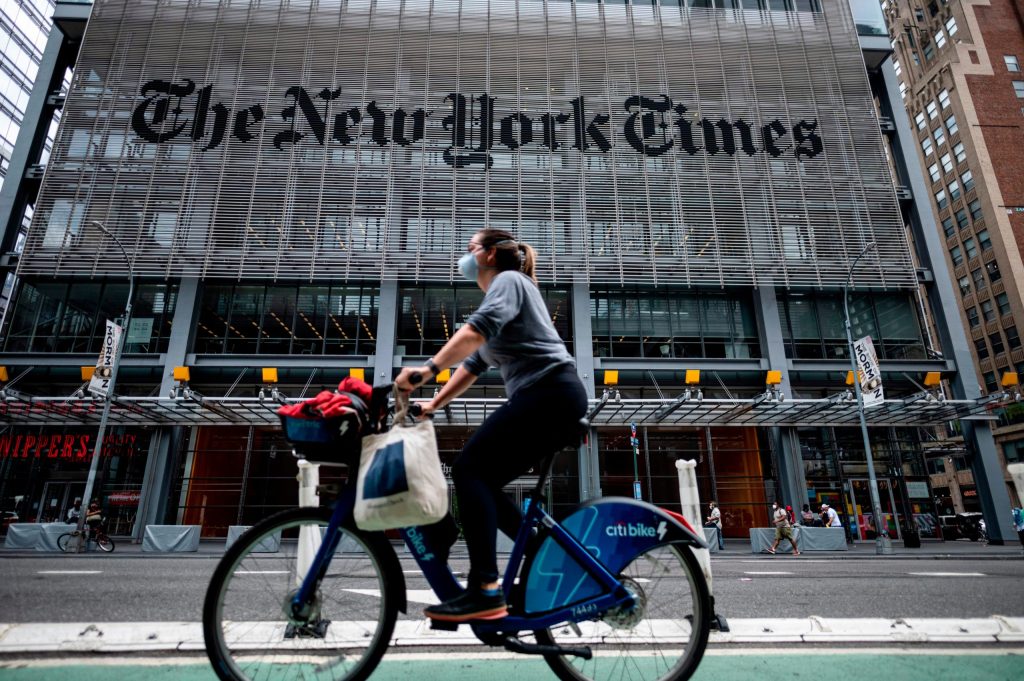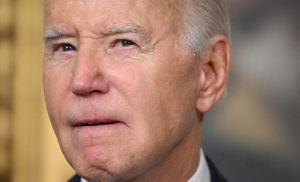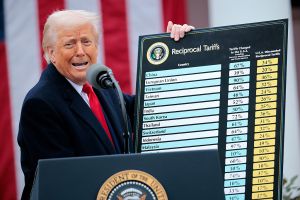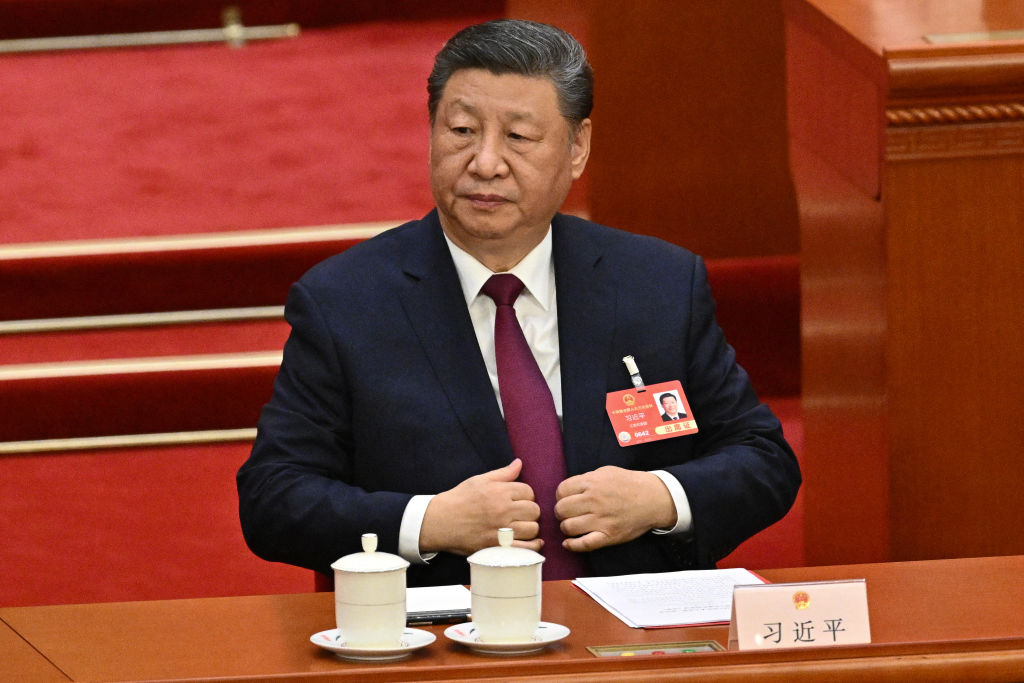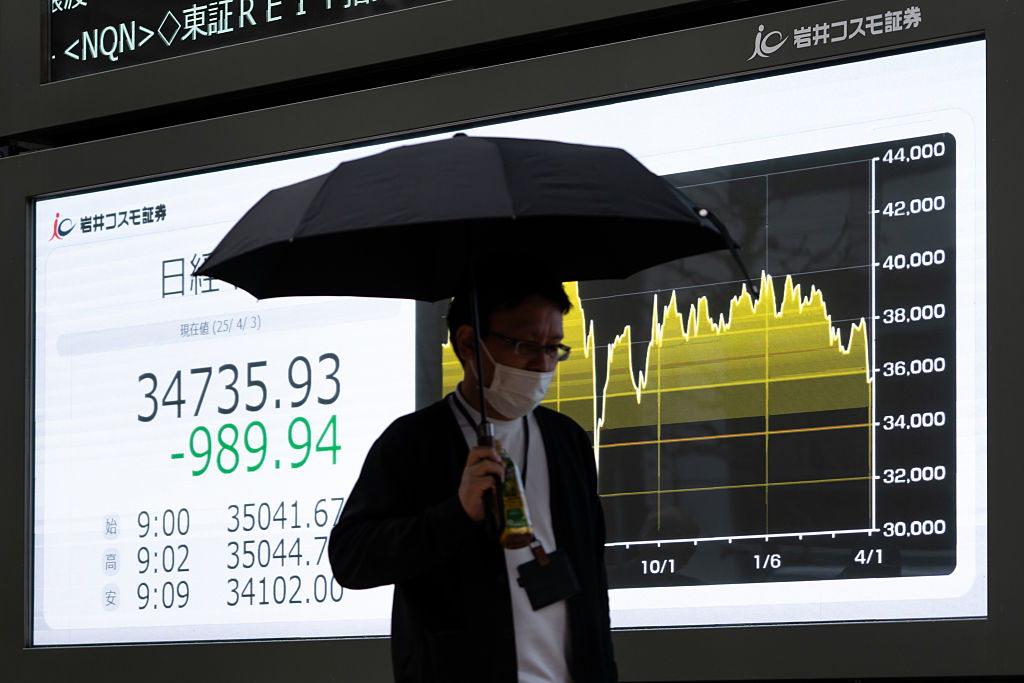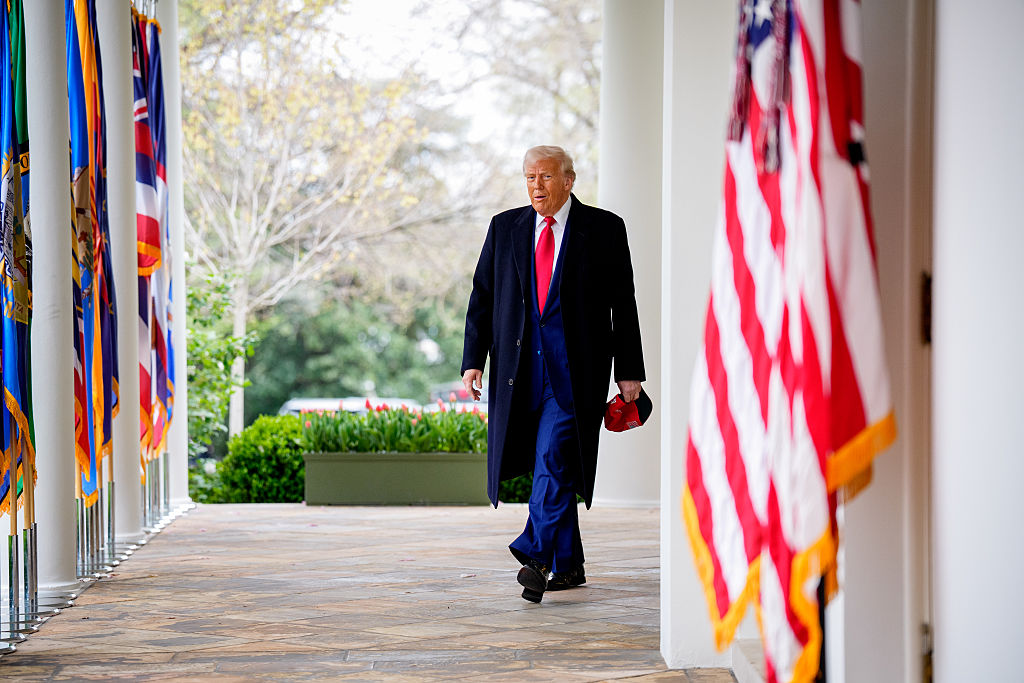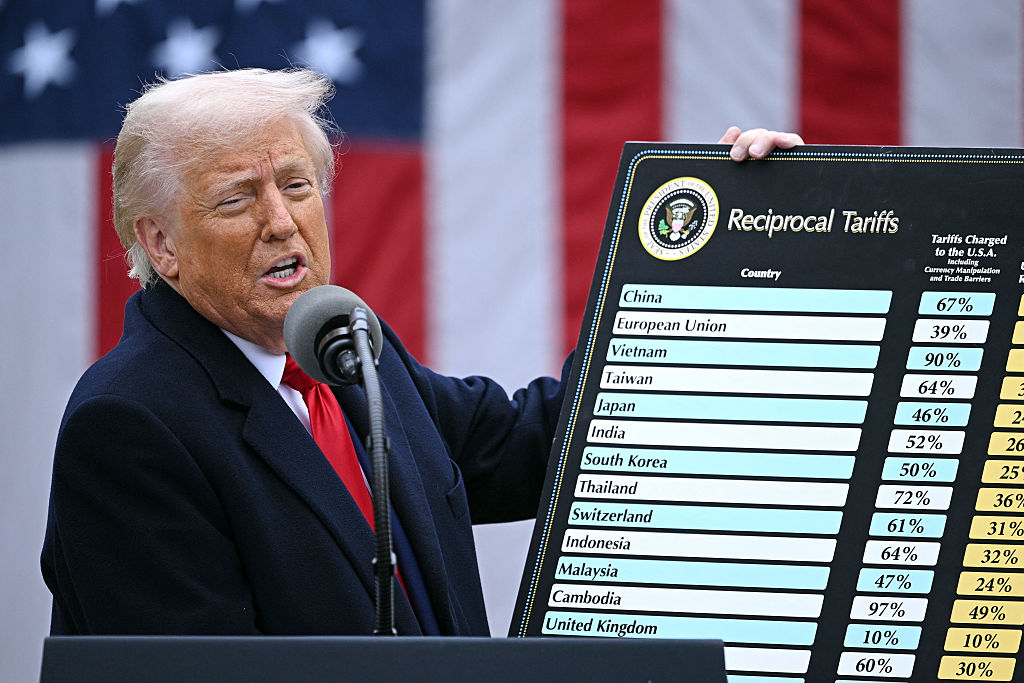The first two decades of the twenty-first century were tumultuous for the American press. From 9/11 and the war on terror and the explosion of the culture wars to the industry-transforming rise of the internet and social media, there was no shortage of challenges to established journalistic practices. But none of these storylines can compete with the intensity, ferocity and sheer ingenuity displayed by the media as it set out to demonstrate that Donald Trump had colluded with Russia to influence the 2016 election. Over more than four years, Russiagate became more than a cause. It became the media’s raison d’être, so important that it forced some of the most reputed outlets in the country to openly disavow cherished journalistic values, like objectivity and neutrality, in favor of a crusade against one man.
The August before the 2016 election, the New York Times ran a front-page story headlined “The challenges Trump poses to objectivity.” Its author, Jim Rutenberg, wrote, “Let’s face it: balance has been on vacation since Mr. Trump stepped onto his golden Trump Tower escalator last year to announce his candidacy.” Among the questions Rutenberg said his colleagues in the media were asking themselves: “Do normal standards apply? And if they don’t, what should take their place?” What happened next would confirm that the answer to the first question was no. Four years later, the paper ran an op-ed by Pulitzer-winning journalist Wesley Lowery who called for the long-held ideal of objectivity to be replaced with a mission to pursue “moral clarity.” According to the column, which received high praise from the Times’s then-top editor Dean Baquet, journalism needs “to abandon the appearance of objectivity as the aspirational journalistic standards.”
The Russiagate crusade was born of this relaxation of journalistic standards. And its costs to the media’s credibility were laid bare in a recent deep-dive into the sorry saga published by the Columbia Journalism Review. Titled “The press versus the president,” the 26,000-word-long investigative piece by former New York Times reporter Jeff Gerth methodically and devastatingly traces the seven-year-long effort by the American press corps to connect Trump to alleged (and largely unsubstantiated) Russian election meddling.
The CJR piece represents a turning point not just for Russiagate but for the American media. In fact, one of the many effects of the piece will be to redefine Russigate itself from a series of questionable interactions between Trump and the Kremlin to a protracted media effort to remove a sitting president from power. In the words of former Wall Street Journal editor-in-chief Gerald Baker, reported in Gerth’s CJR piece, Russiagate was “among the most disturbing, dishonest, and tendentious [media episodes] I’ve ever seen.”
A reasonable expectation of its effect on the media ecosystem would be akin to a journalistic hydrogen bomb being detonated. This was, after all, the Columbia Journalism Review, the publication of the most revered journalism school in the country. If there is anything the media loves, it’s a journalistic retrospective that painstakingly picks apart how a story came together — or fell apart. But in this case, the piece was met with a conspicuous silence.
Perhaps the lack of a response is unsurprising. America’s prestige media outlets are not ready for the overdue reckoning Gerth’s piece makes clear is needed. The length and sheer complexity of the story should not obscure the stark takeaway that the most authoritative institution in American journalism, the same institution that awards the coveted Pulitzer Prize each year, had issued a damning verdict on the Russiagate affair.
The charges in this case had long been made by the Republican Party, the conservative press and Trump himself. While the CJR piece stays well within the lines of sober journalistic convention, the picture that emerges from Gerth’s investigation is a morass of malfeasance on a breathtaking scale, greased by naked ambition and ideological buy-in, all of it orchestrated by a private investigation firm run by former journalists who would not be out of place among characters from Dante’s ring of hell reserved for Sowers of Discord.
The press’s offenses are so voluminous, and so far outside the lanes of accepted journalistic practice, that they’re hard to keep track of. There is former New Republic editor and journalistic wunderkind Franklin Foer submitting drafts of his articles to FusionGPS, the intelligence-cum-PR shop pulling the levers of the anti-Trump campaign. (In a burst of on-the-nose-ism, Foer named the file containing one of his stories “Manchuriancandidate.Foer.”) There is the fact that “[h]undreds of emails were exchanged between Fusion employees and reporters for such outlets as ABC, the Wall Street Journal, Yahoo, the Washington Post, Slate, Reuters and the Times during the last months of the campaign.” There is the Washington Post’s Josh Rogin opining, falsely, that Trump had “gutted” the GOP’s anti-Russian stance, when, in fact, Trump had strengthened that platform.
There is an echo chamber so deep and loud that it’s virtually impossible to discern where claims by one outlet stop and another begin. There is BuzzFeed illicitly obtaining the Steele Dossier at the heart of Russiagate when its reporter photographed its pages after a lawyer, who had the document on his desk, left to use the bathroom. There are FusionGPS operatives exhorting journalists to run stories they want published by, in one case, writing, “[D]o the fucking alfa bank secret comms story. it is hugely important. forget the wikileaks sideshow,” and journalists actually engaging with the bullying.
More damaging and insidious than anything, however, there was the media’s ability to cannily coopt mechanisms of the intelligence community, surrendering journalistic judgment and slavishly following the spooks’ lead. Through accounts of the dozens of Russiagate stories published since 2016, a clear methodology emerges by which the FBI in particular used media reporting on the infamous Steele dossier as evidence of the dossier’s credibility, and media outlets would cite the FBI’s belief in the dossier’s credibility as justification for publishing stories on even its wildest and most lurid claims.
In reality, the dossier, as we now know, was no more than falsehood-riddled opposition research commissioned by the DNC and Hillary Clinton’s presidential campaign. It was, in a word, disinformation. But even more importantly, the CJR piece shows just how instrumental the Clinton campaign was in coordinating the many various attacks on Trump through the media. It spun out storylines that were aggressively pushed by FusionGPS operatives into the media. With very few exceptions, the press not only ran those stories but ran them in exactly the way that the Clinton campaign wanted them run.
But “Clinton campaign” itself became a media euphemism for speaking about the dossier’s creation and insertion into American life. It was Hillary Clinton herself who actively participated in this effort. “Behind the scenes, Clinton was said to have approved a ‘proposal from one of her foreign policy advisors to vilify Donald Trump by stirring up a scandal claiming interference by Russian security services,’” Gerth reports. “Clinton personally supported pitching a reporter to explore the story as the campaign was not ‘totally confident’ of its accuracy,” he writes in another passage.
That the most powerful woman in American politics was not just the source of the Steele dossier but was personally approving and coordinating key elements of the attack campaign against an elected president is a journalistic bombshell. It’s the kind of revelation that, in any other context, where the variables were changed for different parties and different politicians, would trigger reams of prize-winning reporting, followed by appearances on Sunday morning shows, the creation of podcasts and documentaries and so on. In this case, however, revelations about Clinton’s direct involvement were barely reported.
The upshot is that while the media was relentlessly pursuing its campaign to “prove” Trump had colluded with a foreign power to unduly influence the election, the Clinton campaign was working to influence that very same election in an underhanded manner. It did not deliver the election result they hoped for. But it defined the narrative around Trump and his presidency.
The cost of this approach would soon become clear. While the press was hell-bent on pursuing a kind of professional class warfare — serving as the institutional claims adjuster to Peter Strzok’s promised “insurance policy” that would prevent, at all costs, Trump from becoming president — they seemingly forgot to consider the other involved party: the American public, depending on the press for an even-handed presentation of the truth, the politics be damned.
Rather than undergoing a good-faith investigation into the Trump campaign, the media went into Russiagate fully convinced of Trump’s collusion. What mattered was unpacking that conclusion loudly and forcefully enough to egg on America’s elites and deliver the desired outcome: not just impeachment, but the removal of Trump from office.
That effort failed, and came with a serious unintended consequence: most Americans no longer trust the press. And, paradoxically, the media’s scorched earth campaign against Trump stirred up exactly the type of social, political and cultural chaos that Russian intelligence services attempt to sow in every American election — the very type of destabilizing effort to which, the media asserted, Trump had held open the door in 2016.
Missing from the endless parade of insinuation, falsehood and distortion were any checks or balances. And today there is no sense of regret. “I think we covered that story better than anyone else,” Gerth has former New York Times executive editor Dean Baquet saying at a company town hall, and citing numerous prizes, including Pulitzers, the Times won for its Russiagate reporting.
Those prizes were numerous, including multiple Pulitzers, which the prize-awarding board has declined to rescind. And the rewards went well beyond prizes. After having been caught sending article drafts to Fusion for review, Franklin Foer was hired by the nation’s premier political news magazine, the Atlantic. Natasha Bertrand, who peddled Russiagate stories that turned out to be baseless, shot to fame, becoming a CNN national reporter while still in her twenties. Maggie Haberman, who issued an endless barrage of Trump-Russia coverage for the Times, won a Pulitzer for her reporting and published a bestselling book on Trump.
Entertainment deals were done to ensure the story made it to the non-news-reading masses. Showtime did a “four-part documentary film about the Times’s pursuit of the Russia story.” Robert Redford initiated a project with the Washington Post. Social media followings of the Russiagate coterie skyrocketed. The reporters became stars.
The term Russiagate itself speaks volumes about the endeavor. This was meant to be the Watergate of our time. For the hyper-ambitious journalists diving headlong into the affair, they were going to make it so. Their determination in that effort meant the press soon found itself in a quagmire of its own making: a Vietnam for media credibility.
By this analogy, Gerth’s CJR piece is Russiagate’s Pentagon Papers. There is a crucial difference, though. When the Pentagon’s secret account of the Vietnam war was published, it had a major impact on America’s understanding of the conflict and was seen as a boon not only for journalism but for democracy. Gerth’s independent history of Russiagate has, by contrast, been treated as an unseemly hindrance, with the press largely ignoring its publication. As Gerth himself notes in the piece, only a dozen out of the sixty journalists he reached out to spoke to him and “not a single major news organization made available a newsroom leader to talk about their coverage.” While the media extols the virtue of journalistic sunshine, it seems that on Russiagate it has chosen to hide its failings in darkness.
Strangely, it will now fall on the American people to pull the press out of that quagmire, just as it fell to the people to get the military out of southeast Asia. The question we’ll face, however, when the troops of journalism finally return home — if they do — is whether they’ll ever be fit to fight again.



